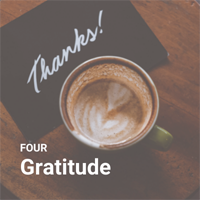“No one is born with an Inner Citadel. If we’re going to succeed in achieving our goals despite the obstacles that may come, this strength in will must be built.”
Ryan Holiday - The Obstacle is the Way
I love the idea of the Inner Citadel, the internal fortress that we can build as armour to protect our minds and hearts against the adversity that we will face as leaders.
This isn’t the kind of armour that Brené Brown refers to where we armour up, build up walls to the people we lead, avoid vulnerability at all costs, and always have to be right. This armour is mental toughness, resilience, and calmness in the heat of battle.
Building your inner citadel means never having to go untrained or ill-prepared into battle. As we embrace the obstacle as the way to approach life, we have to armour our minds and hearts so we are ready to brawl with the challenge in front of us. The fight though, may not look like the one you are imagining. Although they have their place, it’s not necessarily screaming at mirrors, mental flexing, or repeating mantras a hundred times over.
If you google inner citadel, you’ll find plenty of strategies to help build it, but here are a few that I encourage leaders with.
How to build your Inner Citadel?
Read, learn and act. Repeat. Your mind is a sponge, so find inspiration from the lives and experiences of others. Read or listen to content that will challenge your thinking, equip you with the tools to fight, and inspire you to endure.
Develop habits that support you.
What if you woke up fifteen minutes earlier than you do now or ditched your morning social media ritual and spent,
- five minutes reading;
- five minutes reflecting on what you read; and
- five minutes meditating to reinforce what you learnt and writing one thing you will try differently that day.
If fifteen minutes is too difficult to achieve, start with five minutes. When I started building this habit, I started with three. Now, I have to stop myself after an hour or even ninety minutes—what a fantastic way to start your day!
I dare you to try it, and if after 100 days, your inner citadel isn’t strengthened, I’ll buy you a coffee.
Start small, gather momentum from the quick wins and build from there. One of my favourite authors, James Clear, discusses this in his book I highly recommend: Atomic Habits. A must-read. He calls it the two-minute rule.
You’ll find that nearly any habit can be scaled down into a two-minute version:
“Read before bed each night” becomes “Read one page.”
“Do thirty minutes of yoga” becomes “Take out my yoga mat.”
“Study for class” becomes “Open my notes.”
“Fold the laundry” becomes “Fold one pair of socks.”
“Run three miles” becomes “Tie my running shoes.”
There are thousands of journal articles and research that support the benefits of physical exercise for mental toughness.
Weight lifting is known to release endorphins, which are neurochemicals produced by the pituitary gland and the nervous system. Endorphins eliminate stress, depression, and worry. They also assist in reducing pain, inducing pleasure, and regulating your mood.
Get the heart rate up above 120 bpm for 30 to 60 minutes a day 3-6 times a week. Again, start with 5 minutes if you have to. As for me, I love boxing and lifting heavy things. If you go into it with the right mindset, you find that the mental toughness fibres will grow as your muscle fibres grow.
I always had a goal of bench pressing 100kgs. I started at 60kgs, and over time (a year actually), I worked up to 100kgs. I still remember when I achieved the goal, I was elated. But I was also elated each week as the weight increased.
There may be times you find yourself fighting obstacles alone, but avoid that if you can. Strength in numbers is the key. Find people that are on the same journey as you, who inspire you, whom you can learn from, and who can step into battle on your behalf mentally and spiritually when you’re taking a breath to regroup, refocus or re-energise yourself for battle.
I’ve been lucky to find a few such people over the years. They make you feel like superman or wonder woman after spending time with them. They challenge your thinking in a “you have untapped potential that you need to go after” kind of way. They are favourites on your phone, people that make you smile when their caller ID comes up on your screen. They are the people that believe in you and your dreams and have your back. If needed, they can call you out, but they will never leave you to battle alone. For all the people in my world that do this, the commitment goes both ways, so you need to be prepared to reciprocate.

One of the best ways to develop your inner citadel is to create a mindset of gratitude and appreciation. Yes, life is full of challenges that we face head-on, and yes, they can bring negative energy that you have to try and brush off. That energy needs to be balanced out with positive vibes and being grateful for what you do have, even if all you can find is being thankful for the breath you have to face the battles. Name it and be thankful for it. Look around for the small and big things you can be grateful for. Write them down each day, think about them and the feelings they bring.
Start each day thinking about 3 to 5 things you can be grateful for. It doesn’t matter how deep, trivial or silly they may sound. Here are some from my journal from the week just gone:
- My gorgeous Allie (wife)
- Birds chirping away outside
- Coffee
- My parents
- The warmth of the sunrise on my face
- The grace of God
- Kicking ass on a work project
- The relationship I have with Chase and Jack (sons)
- Flowers
- Aaron Gregory (executive officer of a company I chair the board of)
- AICD governance summit (PD I went to)
- Knowing my purpose
- My Yeti mug
-
Technology
Make a daily morning and evening ritual of it, and create moments in your day that can trigger gratitude. I’m not too fond of traffic lights, so I’m trying to see them as a trigger to think about something I’m really grateful for. I haven’t nailed it yet, but it’s coming along. I’m grateful that we can turn things we hate into something that can build our inner strength.

I know no better superpower than that of empathy. The power is in its ability to strip down a negative situation into understanding, patience, tolerance and peace.
The psychological term is Theory of mind which Kendra Cherry defines as,
“an important social-cognitive skill that involves the ability to think about mental states, both your own and those of others. It encompasses the ability to attribute mental states, including emotions, desires, beliefs, and knowledge. Not only does the theory of mind involve thinking about thinking, but it also refers to the ability to understand that other people's thoughts and beliefs may be different from your own and to consider the factors that have led to those mental states.”
A question I’ve learnt to ask myself, mostly in my head, is, “I wonder what is going on in that person’s world that is causing them so much pain that they think their behaviour is appropriate?” Or “I wonder what’s gone on in my world in the past or right now that is causing me to think and behave like I am?” Asking that question itself shifts our perspective on what’s in front of us from one of fight to one of exploration and curiosity. The battle becomes a puzzle. Even if the answer isn’t clear, the question itself brings a level of calm and absorbs the sting of the moment.
As mentioned earlier, there is plenty of material out there in the world to further read but take the above as an encouragement to continue building your inner citadel. As always, if Evolve’s leadership coaching or training can help you along the path, feel free to reach out or go here.
Remember – There is a direct correlation between your external effectiveness as a leader and your internal reality.
Keep building!





